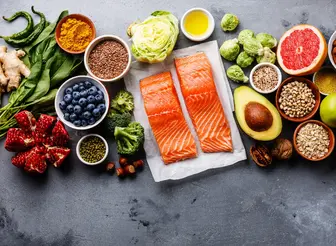Gastric or acid reflux is now a common issue for many people in the world, but did you know your eating habit is one of the main reasons behind this? That’s why I have found some food to avoid for gastric ulcer. Some foods, including beverages and spicy and fried foods, can worsen the symptoms of acid reflux. This problem can have a detrimental effect on your health if you are suffering for a long time. It is crucial for you to be mindful of which foods you are eating, as some foods can exhilarate or trigger symptoms. Here, we will discuss some foods that you should avoid or limit to avoid this problem.
A List of Food to Avoid for Gastric ulcer
Chocolate
chocolate contains caffine, fat, and theobromine, which can stimulate the production of acid and cause acid reflux. Besides, chocolate can trigger other symptoms like discomfort and bloating for some people who have gastric. So instead of chocolate, you can take some low-fat foods, salads, or some fruits.
Energy drinks
Energy drinks contain caffeine and some other stimulants, which may worsen the symptoms. Some energy drinks. Acidity in energy drinks can cause acid reflux or stomach discomfort. So, you should be careful about it to avoid potential complications. Instead of those drinks, you can try some herbal teas, water, and green tea.
Spicy and fried foods
foods with a lot of spice and fried foods can exacerbate gastric issues. They take a long time to digest, which increases acid production and irritation of the stomach lining. You can opt for easily digestible foods.
Citrus fruits
you should avoid citrus fruits such as oranges, lemons, kumquats, grapefruits, and limes, whose juices are highly acidic. Consuming citrus fruits can aggravate the symptoms of acidity and may cause heartburn, acid reflux, or other discomforts related to gastric discomfort. Sometimes even a small amount of acidic fruit can cause a significant gastric problem. Instead of these fruits, you can try non-citrus fruits like apples, pears, melons, berries, and bananas.
Coffee and tea
Coffees and milk teas potentially increase gastric discomfort. You can try some other teas, like green tea, ginger tea, or chamomile tea. Additionally, water can reduce the acid; consuming a good amount of water may help.
Dairy products
Some high-fat dairy products, including whole milk, butter, ice cream, and cheese, can trigger acid reflux as they contain lactose and can be difficult to digest.
Alcohol
Alcohol can irritate the lining of the stomach and cause bloating or acid reflux. It increases acid production, which may cause digestive issues and discomfort. It also causes hair Fall. You should try to avoid alcohol if you are suffering from gastric.
Some frequently asked questions
What foods trigger acid reflux?
High-fatty foods, carbonated beverages, dairy products, citrus fruits, spicy foods, and chocolates can trigger acid reflux.
How can I prevent acid reflux at night?
Try to eat less at night, eat approximately 1-3 hours before sleep, and do not drink water just before eating. Additionally, you can try some home remedies, including green tea, herbal teas, and ginger. You should seek medical help if it has not improved.
What are the long-term effects of acid reflux?
If you do not treat your gastric or GERD for a long time, it can cause several health concerns, such as gastric ulcers, esophageal ulcers,
Respiratory problems, chest pain, and discomfort. Seek out a medical specialist if you have had gastric problems for a long time.
Is acid reflux the same as heartburn?
These conditions are closely related; heartburn is a symptom of acid reflux.
Can stress worsen acid reflux symptoms?
Yes, stress triggers hormone release that can increase the production of acid reflux.
What are the best natural remedies for acid reflux?
You can drink more water, ginger, green tea, herbal teas, or apple cider vinegar.
How can I distinguish between acid reflux and other digestive issues?
Acid reflux is defined as the backward flow of stomach acid into the oesophagus, resulting in symptoms including heartburn, regurgitation, and chest pain. Other digestive problems, such as gastritis or peptic ulcers, can produce abdominal pain, bloating, nausea, and vomiting. A medical examination can aid in distinguishing between these disorders.
Can certain medications cause or worsen acid reflux?
Yes, certain medications, such as some antibiotics, certain antidepressants, nonsteroidal anti-inflammatory drugs (NSAIDs), and calcium channel blockers, sometimes may cause acid production and gastric distress.
Is it safe to exercise if I have acid reflux?
Yes, exercising is generally safe for those with acid reflux. However, certain high-impact exercises or activities that require bending over may exacerbate symptoms. Choose low-impact exercises such as walking or cycling. To reduce reflux, wait at least two hours after eating before exercising.
Are there any home remedies for immediate relief from acid reflux?
You can try baking soda, apple cider vinegar, ginger, chewing gum, some herbal teas or green tea, and aloe vera juice.
Discuss with a healthcare provider if you have been suffering from gastric-related issues for a long time.
In conclusion, managing gastric health effectively involves being mindful of the foods that can exacerbate digestive discomfort and contribute to conditions such as gastritis, ulcers, and acid reflux. By avoiding or limiting intake of trigger foods like spicy dishes, acidic fruits, caffeine, alcohol, and high-fat items, individuals can significantly reduce inflammation, irritation, and excessive stomach acid production.
Additionally, steering clear of processed and sugary foods helps maintain a balanced gut microbiome, which is essential for optimal digestive function. Incorporating a diet rich in easily digestible, nutrient-dense foods such as lean proteins, whole grains, and non-acidic vegetables can promote healing and enhance overall gastrointestinal well-being. It is also beneficial to adopt eating habits that support gastric health, such as consuming smaller, more frequent meals, staying hydrated, and avoiding late-night eating.
By making these dietary adjustments and being aware of personal food sensitivities, individuals can alleviate symptoms, prevent flare-ups, and improve their quality of life. Ultimately, prioritizing gastric-friendly foods and mindful eating practices empowers individuals to take control of their digestive health, fostering a healthier, more comfortable lifestyle. Remember, consulting with healthcare professionals or a registered dietitian can provide personalized guidance to effectively manage and support your gastric health journey.
Frequently asked questions
What foods to eat with a gastric ulcer?
Bananas, apples (non-acidic fruits), Cooked vegetables (carrots, spinach, broccoli), Lean meats (chicken, fish, eggs), Oatmeal, brown rice, Low-fat milk, yogurt, Olive oil, avocados, Herbal teas (chamomile, ginger),
What not to eat when you have an ulcer?
Spicy foods 🌶️, Citrus fruits (orange, lemon), Tomatoes and sauces, Coffee, tea, soda, Chocolate, Fried and fatty foods, Alcohol, Smoking (also worsens ulcers).
Which foods make ulcers worse?
Spicy foods, Citrus fruits and juices, Tomato products, Coffee and caffeinated drinks, Chocolate, Carbonated drinks, Fried, fatty, or greasy foods, Alcohol,


